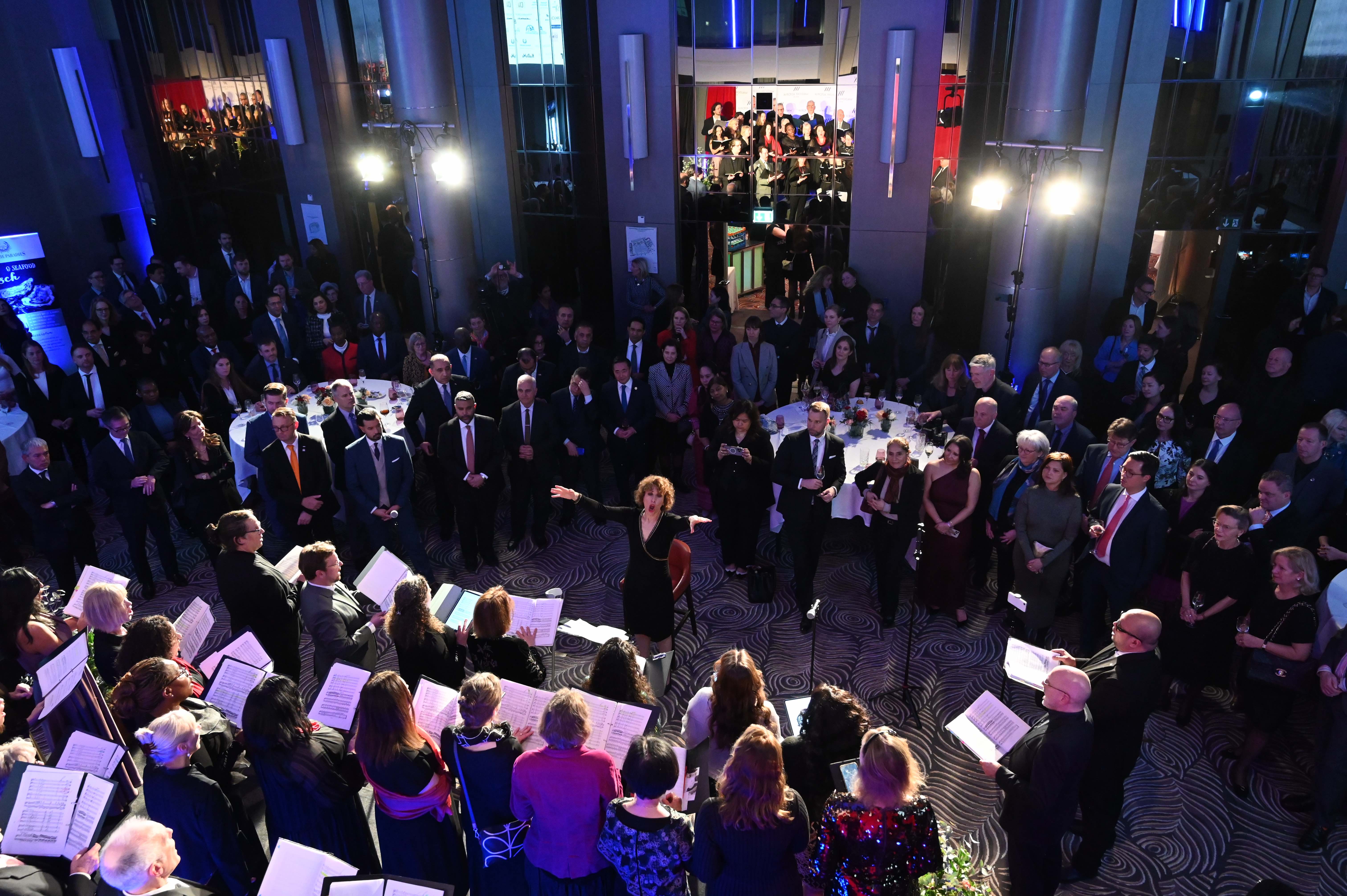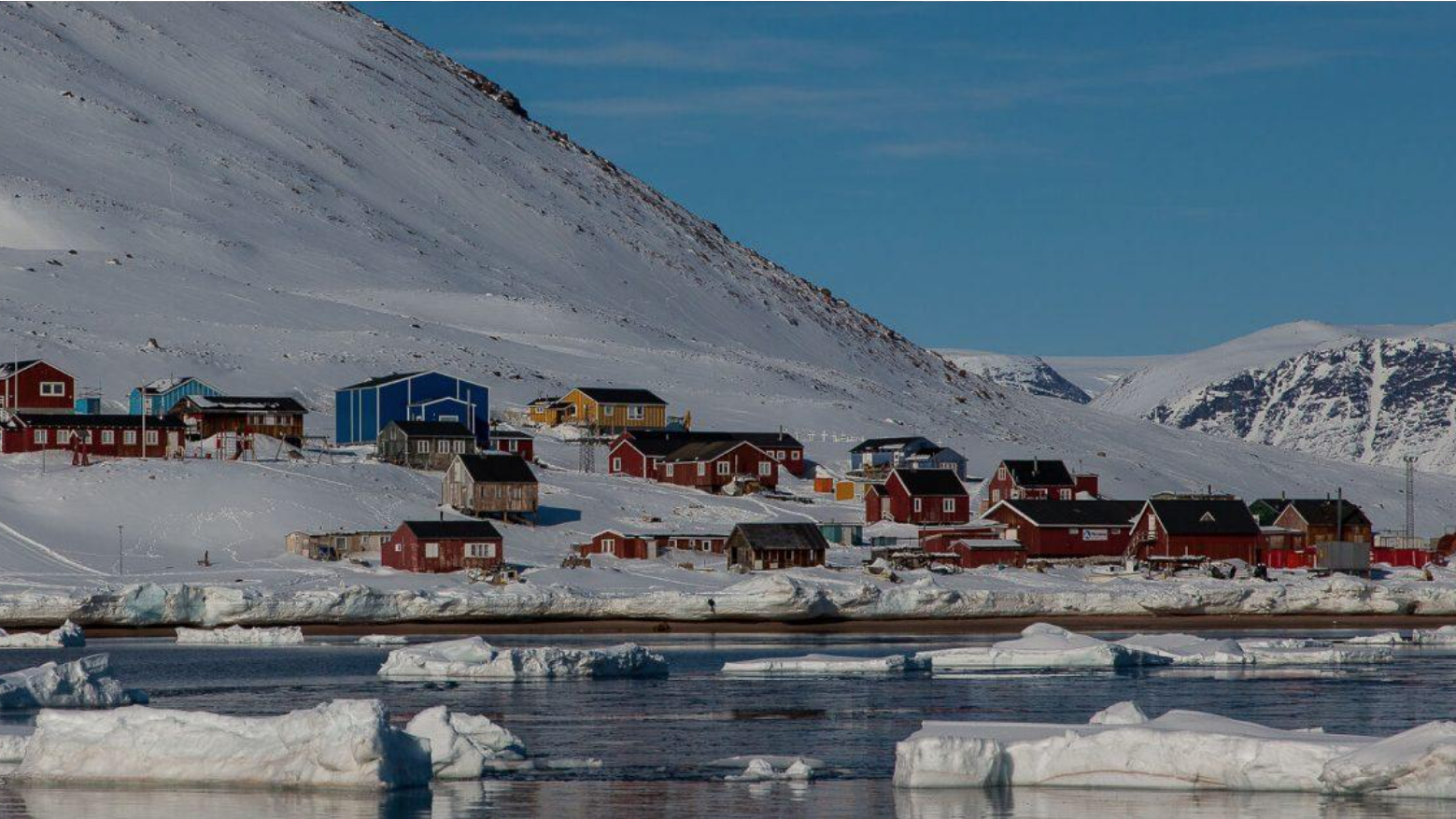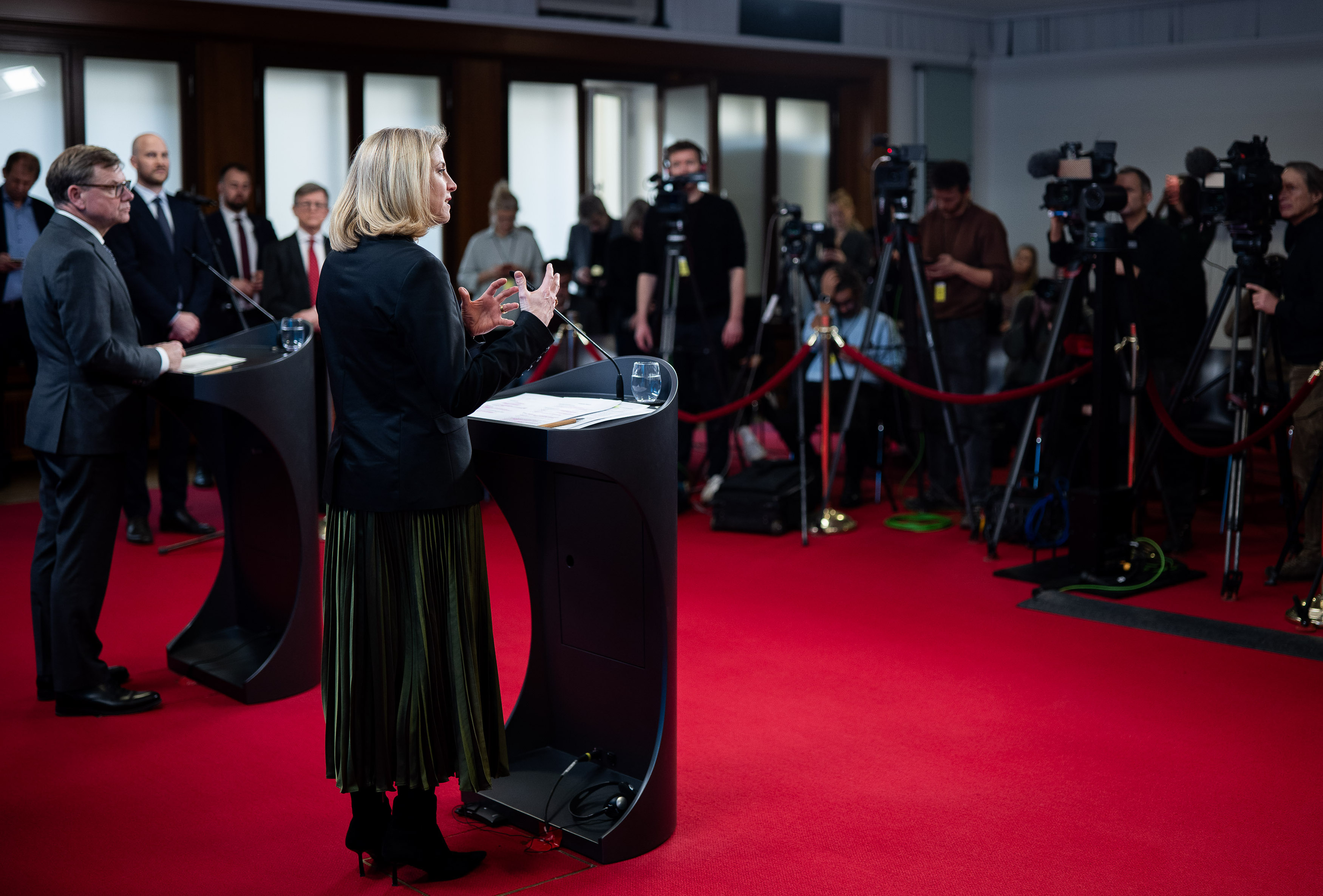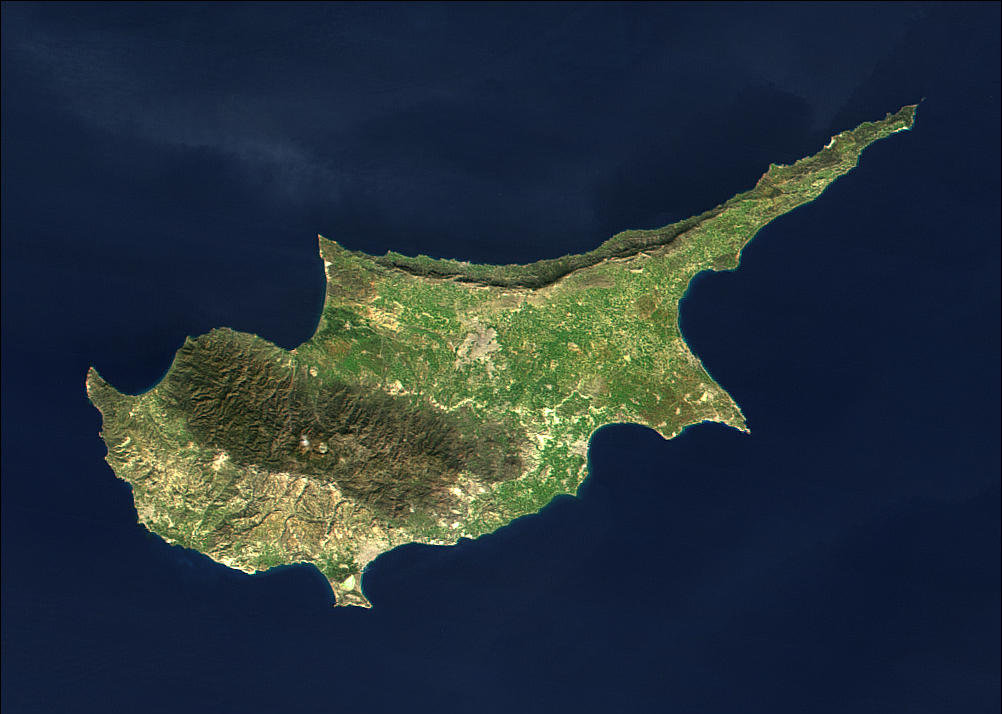diplo.news
The big trembling

Choice of fate, historic election, turning point. The names are dramatic, the countdown is on, and nervousness ahead of the US election this Tuesday is growing all over the world — particularly in the countries south of the Rio Grande. After all, the weakening economies of Latin America depend decisively on the world's largest economy. The narrowness of the race, but also the sometimes major ideological and economic policy differences between Kamala Harris and Donald Trump, are forcing governments and business leaders south of the Rio Grande to draft dual scenarios.
Should Democrat Harris prevail, there would hardly be any significant change in the previous cooperation with governments in the region. This may be bad news for some, good news for others. Her party has paid little attention to the space, often described as a “backyard,” which has at least facilitated the advance of China, Russia and Iran. Trump's interest in Latin America, which has grown even more slowly than Africa in the past decade, is also limited to individual areas primarily related to domestic or economic issues in the USA. In extreme terms, it could be said: Trump wants raw materials from the south, but not migrants. And he - like the Democrats - wants to prevent a Chinese advance, but does not want to invest heavily in return.
Trump is more likely to come to terms with local elites and anti-democratic regimes if they have something to offer that benefits him or the USA. A Harris administration would probably continue to demand compliance with democratic rules of the game, largely avoid governors with obvious deficiencies and impose embargoes, travel bans and account blockages on politicians suspected of corruption. This concerns the regimes in Venezuela and Nicaragua, and the right-wing autocracy in El Salvador. But politicians and public servants from countries suspected of facilitating smuggling, money laundering and drug cultivation (such as Ecuador, Bolivia, Peru or Paraguay) must also fear sanctions.
Mexico's new head of government, Claudia Sheinbaum, won convincing majorities for her left-wing Morena party in the June elections and is now the head of government with the biggest parliamentary backing in all of America. If Trump wins on November 5, she will need it. During the election campaign, he threatened to bomb Mexican drug laboratories and impose high tariffs on imports from Mexico. “It could be 100 percent or 200 percent, it doesn't matter to me. The goal is to simply stop cars from there coming into the country,” he explained. Such tariffs would, of course, be impossible under current legislation, because Mexico is a member of the USMCA free trade zone (USA-Mexico-Canada). However, negotiations on the trade pact are scheduled for 2026 — they are likely to be extremely difficult with Trump. The Republican wants to prevent Chinese and European companies from building new factories in industrial areas near the border of Mexico and in Canada in order to access the US market duty-free.
Trump has also promised his voters that he will expel millions of illegal migrants. Most come from Mexico, Central America and Venezuela. It is clear that no government in the region could integrate so many deportees ad hoc. Venezuelans in particular are likely to seek salvation in other Latin American countries, but more than 6.5 million compatriots already live there, some with considerable difficulties for the host countries. In Chile, Peru and Colombia, the Venezuelan syndicate “Tren De Aragua” has spread, which brutally exploits the helplessness of displaced people - with extortion of protection, prostitution and exploitation. Should Trump actually expel millions more people, he would inevitably destabilize the whole of Latin America. The economies of their home countries also accounted for the Remesas. In Latin America, this is what remittances made by emigrants to their relatives at home are called. Countries such as Honduras, El Salvador and Venezuela only keep their economies running in any way with the help of these transfers.
Sheinbaum's predecessor and mentor Andrés Manuel López Obrador had managed to defy threats during the first Trump presidency and negotiate the free trade agreement in 2020. Mexico and the Morena Party know Trump well, and they have probably also made provisions for personnel in the event of his election. Last year, Mexico certainly made an effort to take the wind out of Trump's sails. The number of refugees picked up by US border guards has fallen by 77 percent since January because Mexico has activated several control lines and shipped migrants from the north back to the southern border. According to the US magazine Newsweek, this was probably the biggest foreign intervention in the US election campaign of all. It is not clear whether Mexico is maintaining these filters. But it is reasonable to assume that Sheinbaum will bring the issue into the negotiations on the trade agreement.
The closer the economic ties, the greater the fear of Trump
Should Harris win, Mexicans, but also Central Americans, can take a deep breath, because the Democrats want to expand the “nearshoring” strategy. The Biden government has so far subsidized manufacturers of important technologies when they withdrew from China and set up new factories in Mexico near the southern US border. Wage costs there are just as low as in China, and there are no customs payments. Democrats also want to improve education programs in Central America. But it is certain that they too will deport significantly more refugees without asylum procedures. In general, the closer the countries' economic ties with the USA are, the greater is the fear of Trump. This applies in particular to Central America and the Caribbean.
Further south, some governments can look at Washington a bit more relaxed. Chile, the world's largest copper producer, for example, will be able to continue selling the coveted metal to the USA. Brazil, which has become China's main supplier of soy since Trump's first China tariffs in 2018, will continue to expand the trade route to the Far East as part of the BRICS alliance (Brazil, Russia, India, China, South Africa) should the USA agree. It is likely that the moderately left-wing heads of government in Colombia, Chile and Brazil prefer Harris to win.
On the other hand, Argentina's President Javier Milei is pretty blatantly looking forward to Trump's victory — even though he cooperates intensively with Biden and the IMF and has led the country out of the ideological environment of Venezuela, Cuba, China and Russia. More clearly than most other — often waxy — governments on the continent, he has adopted the positions of the current US government. He therefore stands strictly behind Israel and Ukrainian President Volodymyr Zelensky. He officially stated that the US election would not influence his pro-Washington course. This leaves room for interpretation, but on a smaller scale, Milei repeatedly revealed his preference for Trump, whom he describes as his role model. On the sidelines of a conference of right-wing liberal politicians in Washington this year, Milei wished the Republican a victory in front of the cameras.
However, a Trump victory could also mean problems for Argentina, warn money market experts such as Robin Brooks from the Brooking Foundation, who is influential on Wall Street. Because should the US president raise his tariff limits, this is likely to appreciate the dollar, Brooks estimates. At the same time, China could devalue the renmimbi in order to sell its products more cheaply. This would set in motion a worldwide spiral of devaluation. This would deprive the few economies that, like Argentina, still peg their currency to the dollar, of any competitiveness. Milei would have difficulty lifting the exchange controls that are still in force, but this is essential for foreign investors. The head of state is apparently hoping that Trump will provide him with a new loan from the International Monetary Fund.
Two other presidents of Latin America still prefer a Republican victory. Najib Bukele from El Salvador, self-proclaimed “coolest dictator in the world,” would like to overcome his country's isolation with Trump's help. Washington has reduced contacts to a minimum since human rights groups denounce torture and lawlessness. Bukele has ruled on the basis of a state of emergency since 2022 and imprisoned 80000 people — two percent of the population. Venezuela's ruler Nicolás Maduro, who always preaches that all evil comes from the North, must expect to be largely ignored by a Harris administration and placed with embargoes if, on January 10 next year, he sweeps over the official sash that his opponent Edmundo Gonzalez Urrutia actually won. Trump is not aware of such moral scruples and fears of contact. He could possibly be prepared to make deals that benefit both sides. For example, five refineries on the US south coast that were built decades ago to process the exceptionally heavy Venezuelan oil are barely operating at full capacity. At the same time, however, the USA wants to build up larger reserves of raw materials to prevent price jumps such as those following the invasion of Ukraine. If these reserves don't come from the chronically sensitive Middle East, then all the better.




